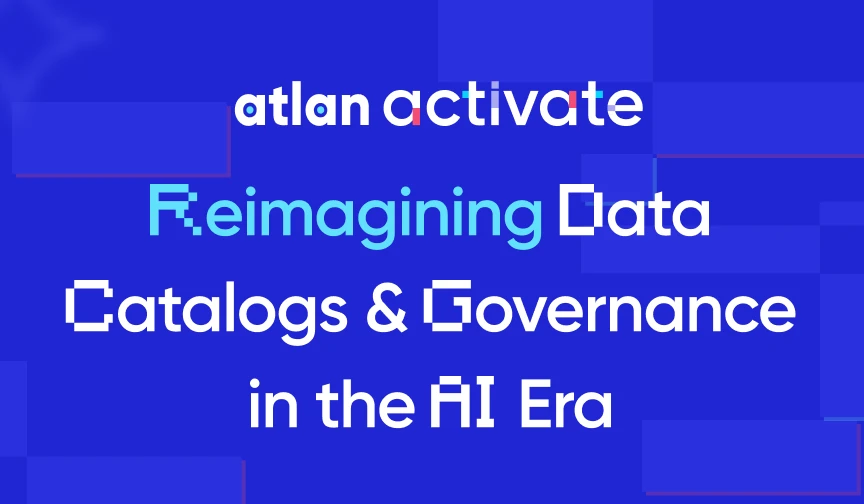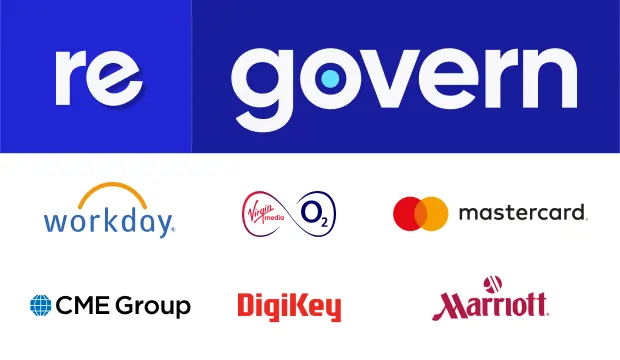Part 1: Foundations
The bedrock principles that guide every decision at Atlan
Customer Over Everything
Every company claims to be customer-focused. At Atlan, we mean it differently.
Customer > Company > Team > Me
This hierarchy drives every decision. When faced with a choice:
• A feature that's fun to build vs. one that solves customer pain? Customer wins.
• A process that's convenient for us vs. one that's better for customers? Customer wins.
• A strategy that boosts short-term metrics vs. one that delivers lasting customer value? Customer wins.
Story: The Metadata API Decision
We once faced a critical decision about our metadata API architecture. The engineering team had spent months designing an elegant solution they were excited about. It was technically superior, would be a joy to maintain, and showcase our technical prowess.
But customer research revealed a problem: this approach would require significant migration effort for enterprise customers. The alternative - less elegant, more work for us - would be seamless for customers.
The team made the hard choice. They shelved months of work to build the customer-friendly version. No one outside Atlan ever knew about this sacrifice. That's precisely the point.
As a leader, your role is to:
1. Make customer impact visible: Ensure every team member understands how their work affects customers
2. Reward customer-first decisions: Celebrate when teams choose customer benefit over convenience
3. Model the behaviour: Make your own customer-first trade-offs visible to your team
Customer > Company > Team > Me
This hierarchy drives every decision. When faced with a choice:
• A feature that's fun to build vs. one that solves customer pain? Customer wins.
• A process that's convenient for us vs. one that's better for customers? Customer wins.
• A strategy that boosts short-term metrics vs. one that delivers lasting customer value? Customer wins.
Story: The Metadata API Decision
We once faced a critical decision about our metadata API architecture. The engineering team had spent months designing an elegant solution they were excited about. It was technically superior, would be a joy to maintain, and showcase our technical prowess.
But customer research revealed a problem: this approach would require significant migration effort for enterprise customers. The alternative - less elegant, more work for us - would be seamless for customers.
The team made the hard choice. They shelved months of work to build the customer-friendly version. No one outside Atlan ever knew about this sacrifice. That's precisely the point.
As a leader, your role is to:
1. Make customer impact visible: Ensure every team member understands how their work affects customers
2. Reward customer-first decisions: Celebrate when teams choose customer benefit over convenience
3. Model the behaviour: Make your own customer-first trade-offs visible to your team
Speed as a Core Value
At Atlan, speed isn't just about moving fast - it's about learning fast, adapting fast, and delivering value fast.
Speed beats perfection. Every time.
Why? Because the world doesn't wait. While we perfect, customers struggle. While we polish, competitors ship. While we debate, opportunities pass.
But speed at Atlan has a specific meaning:
• Speed to customer value, not just speed to ship
• Speed to learning, not just speed to completion
• Speed with direction, not just motion
Story: The 48-Hour Rule
A customer reported a critical bug that was blocking their quarter-end reporting. The "right" fix would take two weeks - it required refactoring a core component. The team had a choice: wait for the perfect fix or ship a tactical solution in 48 hours.
They chose speed. The tactical fix went out in 36 hours. The customer unblocked. The refactoring happened later, informed by real usage data from the tactical fix. Speed created value AND learning.
As a leader, you drive speed by:
1. Setting aggressive timelines: Not unrealistic, but uncomfortable
2. Removing blockers relentlessly: Your #1 job is clearing the path
3. Celebrating fast failures: Quick failures teach more than slow successes
4. Defaulting to action: When in doubt, ship and learn
Speed beats perfection. Every time.
Why? Because the world doesn't wait. While we perfect, customers struggle. While we polish, competitors ship. While we debate, opportunities pass.
But speed at Atlan has a specific meaning:
• Speed to customer value, not just speed to ship
• Speed to learning, not just speed to completion
• Speed with direction, not just motion
Story: The 48-Hour Rule
A customer reported a critical bug that was blocking their quarter-end reporting. The "right" fix would take two weeks - it required refactoring a core component. The team had a choice: wait for the perfect fix or ship a tactical solution in 48 hours.
They chose speed. The tactical fix went out in 36 hours. The customer unblocked. The refactoring happened later, informed by real usage data from the tactical fix. Speed created value AND learning.
As a leader, you drive speed by:
1. Setting aggressive timelines: Not unrealistic, but uncomfortable
2. Removing blockers relentlessly: Your #1 job is clearing the path
3. Celebrating fast failures: Quick failures teach more than slow successes
4. Defaulting to action: When in doubt, ship and learn
Intellectual Honesty Above All
The hardest person to be honest with is yourself. The second hardest is your team. At Atlan, we practice radical intellectual honesty.
Reality doesn't care about our feelings. Neither should we.
Intellectual honesty at Atlan means:
• Admitting when we don't know something
• Acknowledging when we're wrong
• Sharing bad news as fast as good news
• Confronting uncomfortable truths
• Separating wishes from facts
Story: The Feature That Wouldn't Scale
We built a feature that customers loved in demos. Usage data told a different story - adoption was near zero. The team had invested months. Walking away felt like failure.
In the retrospective, brutal honesty emerged: we'd built what we thought customers wanted, not what they actually needed. We'd ignored early signals because we were in love with our solution.
The team killed the feature, documented the lessons, and redirected efforts. Six months later, those lessons informed a different feature that became one of our most-used capabilities.
As a leader, you foster intellectual honesty by:
1. Admitting your mistakes publicly: Your vulnerability creates safety for others
2. Asking uncomfortable questions: "What are we avoiding talking about?"
3. Rewarding truth-telling: Especially when it challenges you
4. Creating blameless post-mortems: Focus on systems, not individuals
5. Sharing your uncertainties: "I don't know" is a powerful phrase
Reality doesn't care about our feelings. Neither should we.
Intellectual honesty at Atlan means:
• Admitting when we don't know something
• Acknowledging when we're wrong
• Sharing bad news as fast as good news
• Confronting uncomfortable truths
• Separating wishes from facts
Story: The Feature That Wouldn't Scale
We built a feature that customers loved in demos. Usage data told a different story - adoption was near zero. The team had invested months. Walking away felt like failure.
In the retrospective, brutal honesty emerged: we'd built what we thought customers wanted, not what they actually needed. We'd ignored early signals because we were in love with our solution.
The team killed the feature, documented the lessons, and redirected efforts. Six months later, those lessons informed a different feature that became one of our most-used capabilities.
As a leader, you foster intellectual honesty by:
1. Admitting your mistakes publicly: Your vulnerability creates safety for others
2. Asking uncomfortable questions: "What are we avoiding talking about?"
3. Rewarding truth-telling: Especially when it challenges you
4. Creating blameless post-mortems: Focus on systems, not individuals
5. Sharing your uncertainties: "I don't know" is a powerful phrase




















